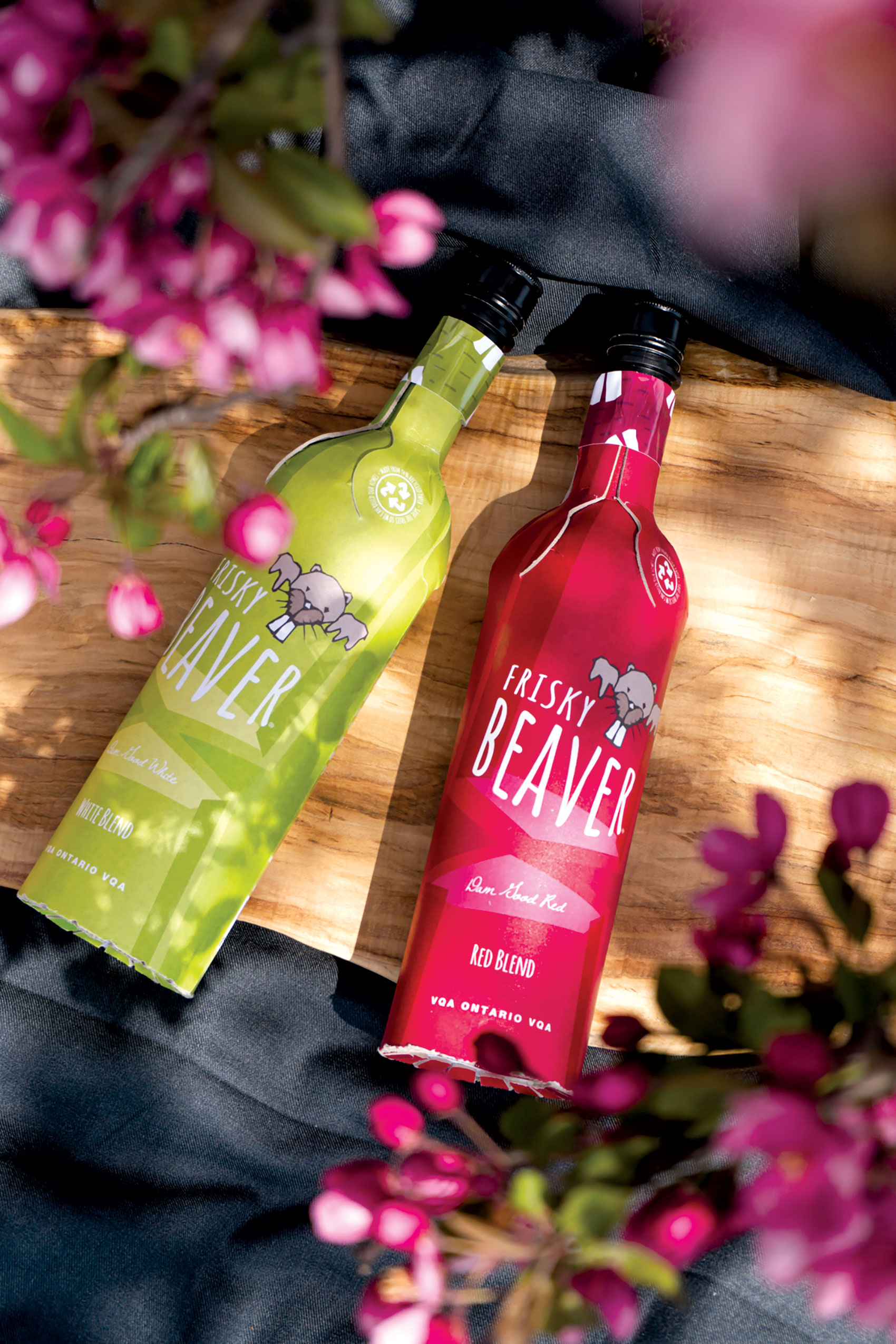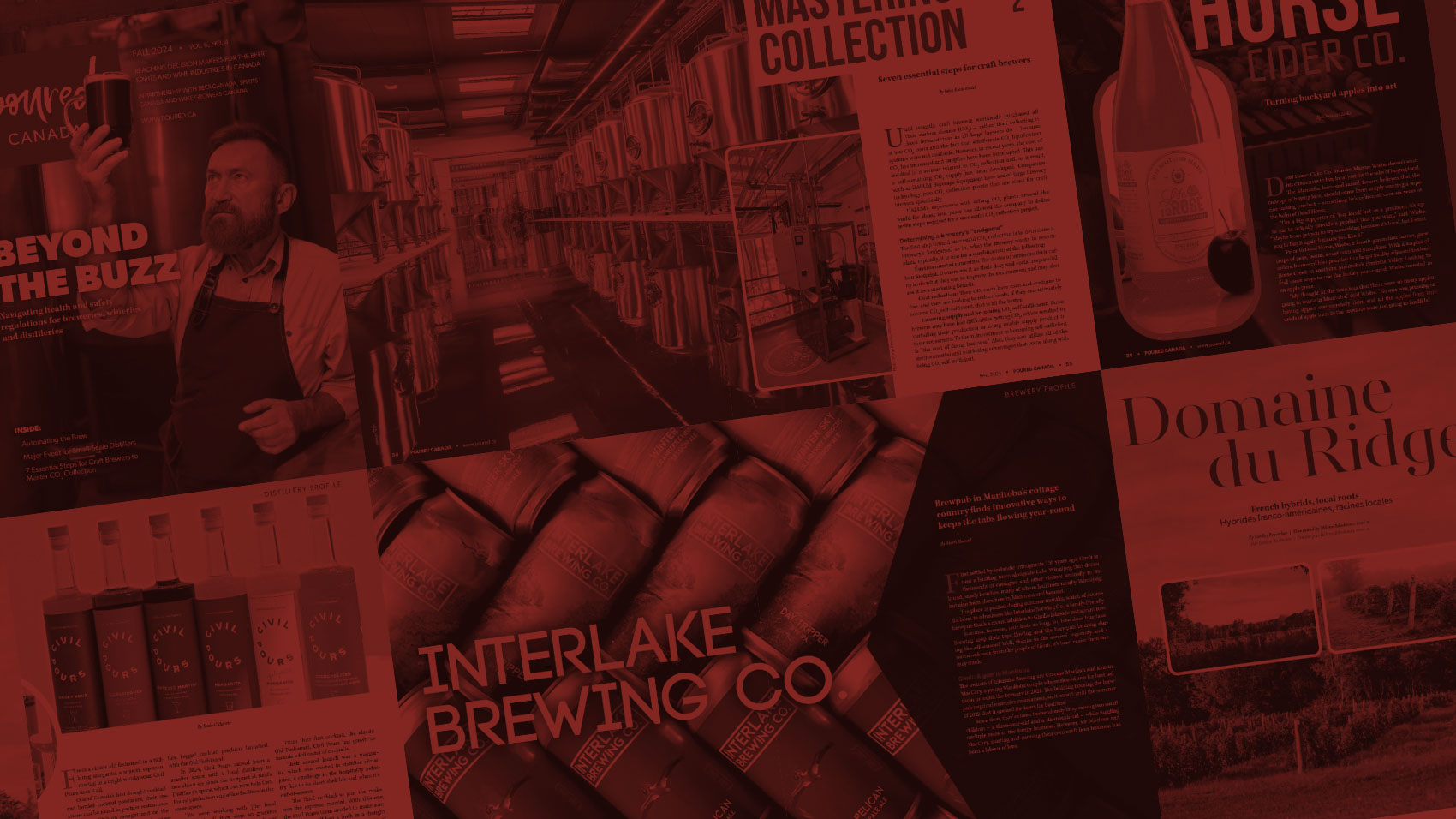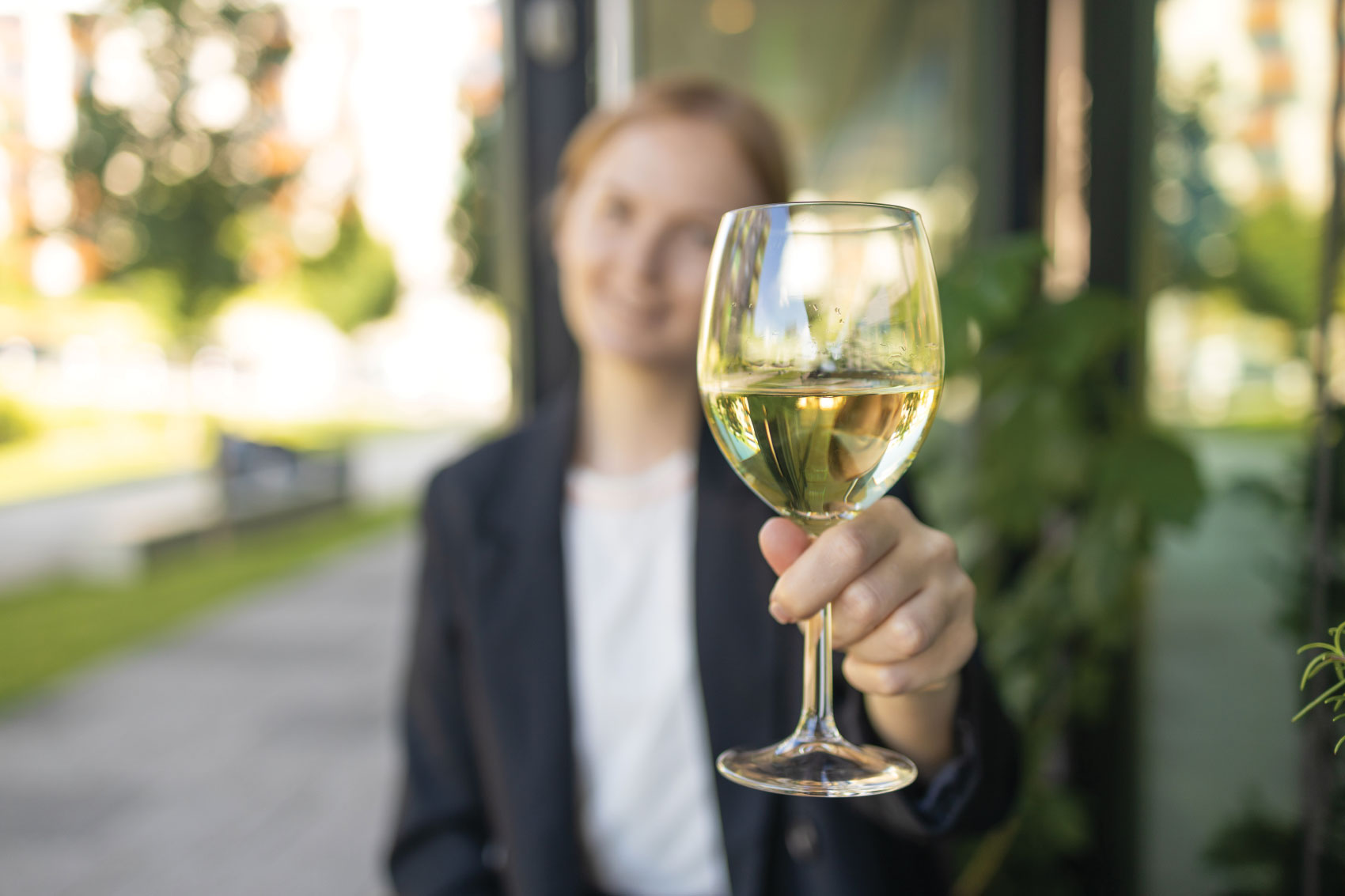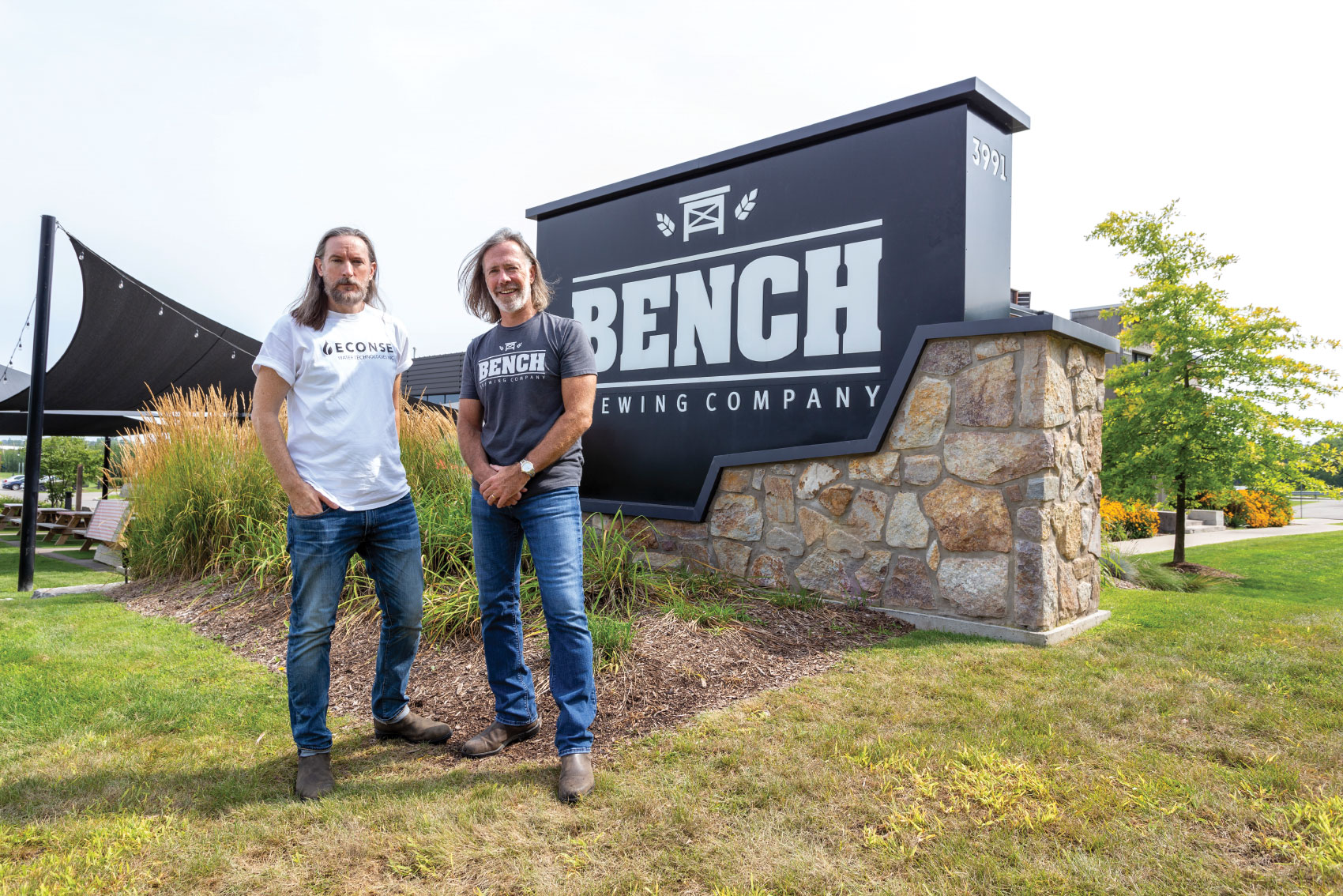After more than a decade in the packaging industry, Shawn Bonnick initially founded KinsBrae Packaging in 2014 to be a distributor of packaged goods, simply wanting to take care of his customers. However, the company has evolved to become far more than originally intended.
“Over the years, our customers have asked us to provide solutions to their warehousing, transportation, logistics and – of course – packaging needs,” said Bonnick. “In truth, it has been our customers who have really been the driving force when it comes to the innovation and growth that we’ve seen over the better part of the last decade.”
Located in Cambridge, Ont., KinsBrae operates out of a 50,000 square foot facility and employs 16 workers, with another six workers expected to be hired later this year. KinsBrae differentiates itself from the competition with its capacity to be a one-stop shop for all its customers’ needs, offering a wide array of sustainable and custom packaging solutions for a range of industries, including food, beverage, retail and nutraceuticals. The company also offers a variety of in-house services, such as design, warehousing, logistics and fulfillment, digital printing, co-packing, labelling, sleeving and – most recently – manufacturing paper bottles.
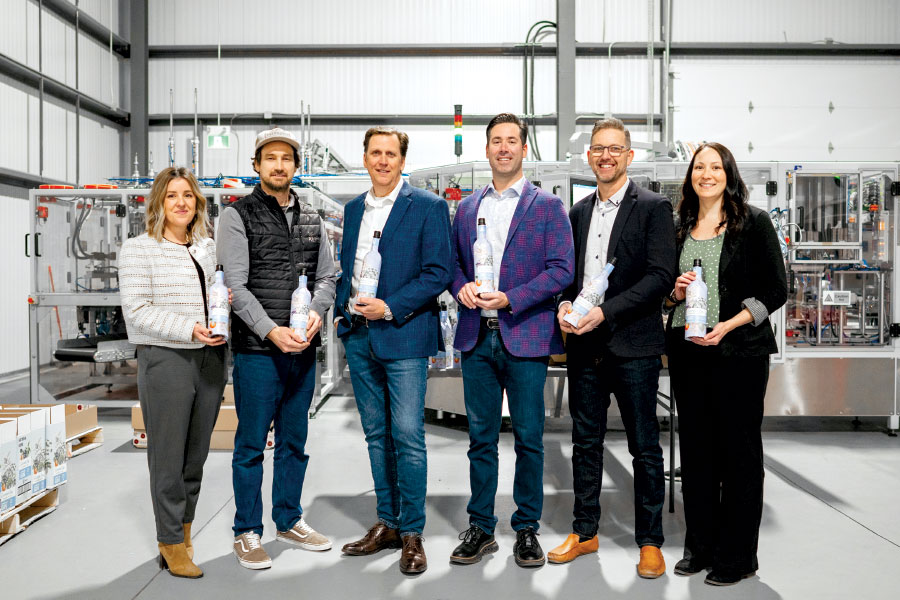
KinsBrae’s ability to handle all aspects of packaging provides its customers the confidence that what they need will be there when they need it.
“You’re never going to have a situation where one supplier is blaming another supplier because your product didn’t arrive on time; we’ve completely eliminated that from our portfolio,” said Bonnick. “And, because we always stand behind our product, when something goes wrong, we will do whatever we can to make it right.”
A paper bottle
This ability to offer the whole package when it comes to packaging made KinsBrae a natural choice for the U.K.-based sustainable packaging firm, Frugalpac Ltd. (Frugal), as it was looking for a partner to help introduce the FBAM-1, the first-of-its-kind paper bottle machine.
“Frugal was just Googling packaging and they found us here in Cambridge,” said Bonnick. “They saw that we were already dealing with every single piece that makes up their paper bottle, so it just made sense to approach us and then have us to support everything, rather than find six or seven different suppliers to do the same thing. Frugal has been a fantastic organization to work with. Them being an equipment manufacturer and us being a packaging company, this partnership has really married the best of both worlds together.”
Ideal for wine, spirits or olive oil, the KB Bottle is the world’s first commercially-available paper bottle designed for non-carbonated beverages, all the while looking almost identical to a glass bottle sitting on the shelf.
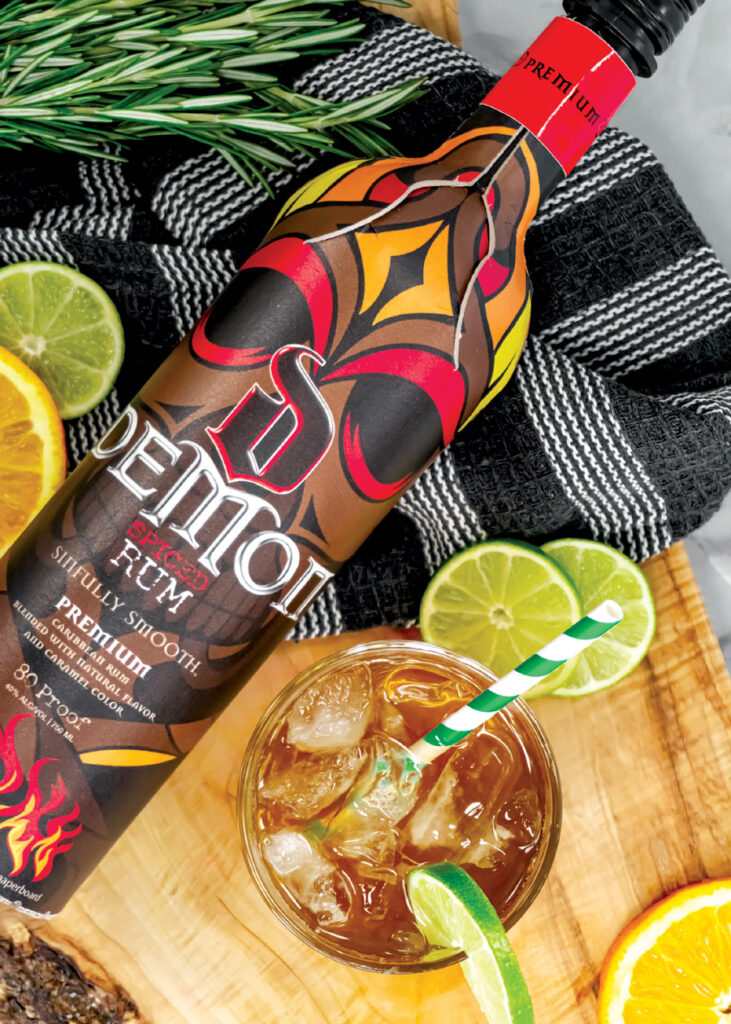
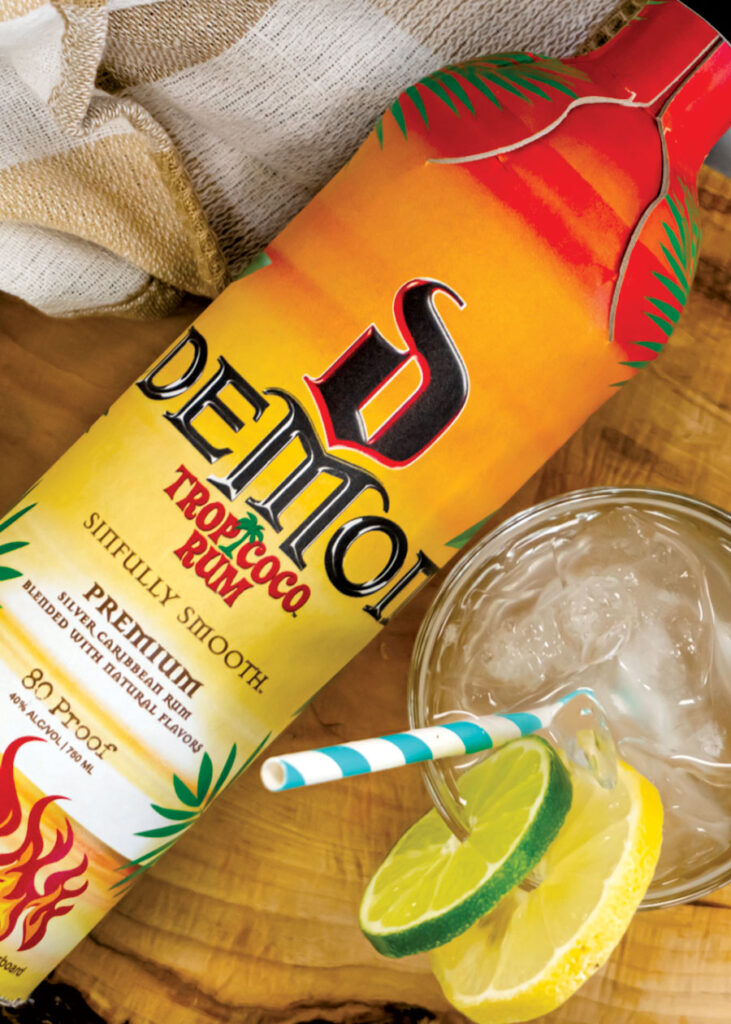
“In the beginning, whenever I spoke about the paper bottle, everybody said, ‘Oh, it’s going to be in a box shape.’ No, it’s not in a box shape; it’s a bottle shape, but made of paper,” said Bonnick. “The paper bottle has the same texture as the cereal box in your cupboard, but more rigid. When you pick it up and hold it in your hands, you know it’s definitely not glass, it’s not a label and it’s not a sleeve – the paper bottle is something completely different.”
While it may take a little time for people to wrap their heads around the concept of a paper bottle, they are certainly coming around to the idea.
KinsBrae had its first full day of paper bottle creation in early February, and the response to the KB Bottle has been overwhelming, so much so that KinsBrae is looking to bring in another two Frugal paper bottle machines by the end of 2024 to keep up with demand. The company’s two launch partners – Georgian Bay Spirit Co. and wine brand, Frisky Beaver – have seen tremendous success with the sales of their products in the paper bottles, and interest is growing in the paper bottle with other major brands across North America.
Recognizing innovation
The success of the KB Bottle has not gone unnoticed. In February 2024, KinsBrae and the KB Bottle earned the prestigious Product of the Year Canada award in the 2024 packaging category – Product of the Year is the world’s largest consumer-voted award for product innovation.
“When you pick it up and hold it in your hands, you know it’s definitely not glass, it’s not a label and it’s not a sleeve – the paper bottle is something completely different.”
Shawn Bonnick, KinsBrae Packaging
The annual Product of the Year award provides a trusted resource to easily guide consumers to the best new products on the market. Chosen by 4,000 Canadian shoppers in a national survey conducted by Kantar, a global leader in consumer research, the KB Bottle was a clear winner and was awarded the highly-coveted red seal, which recognizes the product’s innovation in the packaging category.
Katy Saito, marketing manager at KinsBrae, said, “It is amazing to see that Canadians love and believe in the KB Bottle the same way that we do. This innovative and sustainable packaging technology offers a disruptive and revolutionary alternative to the glass bottle, and we are excited to see more companies get on board with the KB Bottle across the country.”
The benefits of a paper bottle
While at first glance the KB Bottle may seem pretty ‘out there’ for many consumers, there are many reasons to make the transition from glass containers to paper.
The KB Bottle is more sustainable. Made from 100 per cent recycled paperboard, the paper bottle is significantly lighter than a normal glass bottle, weighing only 83 grams. The paper bottles also have a carbon footprint up to six times lower than a glass bottle, use 77 per cent less plastic than a plastic bottle and the water footprint is four times lower than a typical glass bottle.
The recyclable bladder on the inside of the paper bottle is what holds the liquid and is similar to what is used in boxed wine. The paperboard casing and interior bladder can easily be separated and go into the recycling bins of any municipality.
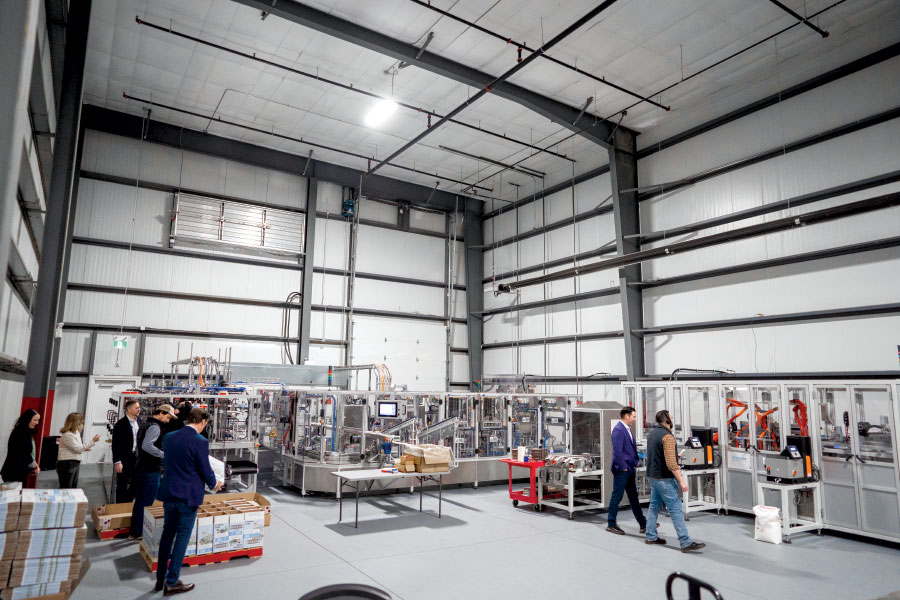
“The paper bottle is made from 100 per cent post-consumer material sourced from mills here in the North American market,” said Bonnick. “We’re part of the circular economy, where we’re taking recycled board to create these paper bottles that can then be recycled another time. It is really amazing to see.”
The paper bottle tends to be easier to transport because of its light weight compared to glass, so more bottles can be loaded on a truck. KB Bottles are also shatterproof and do not break during transport, and the paperboard used in the manufacturing of the bottle is thick and unlikely to tear. Even if it does rip, the liquid is encased inside a thick plastic pouch that preserves it and prevents spillage.
Another benefit is that the paper bottle can go where glass bottles are prohibited due to the risk of breakage, such as poolside or patios. Paper bottles are completely customizable and are a perfect canvas for branding, offering 360 degrees of design space that can include graphics along the sides, top and the bottom of the bottle.
“The paper bottles have all this space to display your brand, which can be a real advantage when you’re looking at creating a shelf presence that is greater than a standard glass or PET [polyethylene terephthalate] bottle,” said Bonnick. “So, there’s a whole slew of benefits to this bottle, from the marketing aspect to the environmental to the cost savings – it all adds up to provide a very compelling case for the general public, as well as the co-packers, wineries and distilleries.”
Looking ahead, KinsBrae will continue to focus on the needs of its customers and search out new opportunities to expand the use of the paper bottle into other markets.
“We’ve had some great conversations over the past few weeks in regard to the food industry; everything from infused oils to salad dressings and juices,” said Bonnick. “We have a few customers who are even looking at the paper bottle for soaps. It has been awesome to see customers thinking outside the box of what they can use the paper bottle for. I’m very excited to see what people will do with it over the next 12 to 18 months.”

